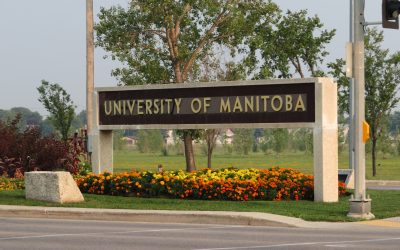In the last few days, two academic conferences were criticized for not being sufficiently “diverse.” A conference to empower women and train them for leadership was cancelled by St. Catherine University in St. Paul, Minnesota, because, according to university officials, the lineup of speakers did “not reflect the diverse St. Kate’s community of today nor the world of tomorrow we are committed to creating.”[1]
The problem was that the twenty speakers invited were all white women. They may have been diverse in their gender experience or in their sexual preference, but that was not deemed sufficient. No inquiry was indicated about diverse religious affiliations or national backgrounds. Certainly whether or not the speakers’ views on the subject of the conference were diverse was not a concern to St. Catherine University. However diverse their backgrounds, experience, orientations, and views, they were still all white. So without women who were black, brown, yellow, red, and blue, they were considered by the University to be insufficiently diverse.
As well an Applied History conference at Stanford University was panned by tweets from various academics for being “too white” and “too male.”[2]
ALL-MALE HISTORY CONFERENCE. This goes for the GUINNESS BOOK of the century! A team of 30 white male historians will discuss Applied History at @Stanford . What a shame. https://invitepeople.com/events/10722[3]
In fact, according to the organizer, “four out of 19 individuals invited to present papers at the conference were women,” but only one was able to attend. But the organizer did defer to the god of diversity by saying “Everybody was keenly aware that it was too white and too male.”
No one is more devoted to diversity than our Canadian Prime Minister, who repeatedly asserts that “Diversity is our strength”[4] and “Diversity is Canada’s Strength.”[5] Not everyone agrees, of course. Others argue that diversity is a weakness, and assimilation and unity are strengths.[6] Similar reaction comes from authors discussing the United States.[7]
The Government of Canada makes clear that, however much it loves census category diversity, it opposes diversity of opinion. Its distribution of summer job money is contingent on sponsoring organizations committing themselves to the Government’s views on abortion and other controversial policies.[8] The Government strongly supported M-103, a motion condemning “Islamophobia,” an invented mental condition propagated by the Organization of Islamic Cooperation to silence criticism of Islam. The Government is now looking at specific legal measures to silence any criticism of Islam. For the Government of Canada, diversity of gender, race, religion, sexual preference, and nationality is obligatory, but diversity of opinion is outlawed.
As a university professor, I have to admit that I have been remiss in not enforcing “diversity” in my classes. In my senior seminars on “Immigration and Culture,” I assigned three books, all by women. So was I at fault for not assigned at least one book by a man? The three women, however, are quite diverse: one an African, one a Norwegian, and one a Canadian.
But why did I not assign a book by an Asian or a Pacific Islander? The answer, of course, is that I picked what I thought were the three best books academically and pedagogically for the seminar. Should I have picked weaker and less informative books with male, Asian, Mediterranean, Pacific, or First Nations authors, to insure greater “diversity”? Or would that be an abdication of my responsibility as an academic and teacher?
Universities used to base their decisions on academic criteria, the intellectual quality of the work. This is no longer the case. Universities now base their decisions on gender, race, sexual preference, religion, disability and nationality, so as to guarantee “diversity.” They admit students and hire professors with weak academic credentials because of their skin colour, gender, religion, sexual preference, nationality, economic class, or disability. Some now hold places for the homeless, the uneducated, and mentally disabled.[9]
Is this not a betrayal of the academic mission of the university? Should academic goals be set aside in favour of social engineering? Are universities now becoming social reform agencies? How can serious academic work get done when recruitment is based not on academic achievement and capability, but on non-academic, demographic criteria?
What exactly is the idea behind this “affirmative action,” admitting some applicants with weak records? Is the idea that Indigenous people and blacks are not smart and hard working enough to compete with whites and Asians on an equal basis? So the solution is having double standards: easy requirements for some designated groups and tough standards for whites, and even tougher ones for Asians? Is this not the racism of low expectations: “Blacks and members of First Nations are not up to competing successfully.” Should not our position be the opposite: “We think that blacks and Indigenous people are just as smart and just as capable as any other group, and we expect them to compete on an equal basis.” Certainly if the decisions made by universities were made by professional sports teams for selecting their players, people would take notice! Our focus should be welcoming in all positions successfully achieving individuals of all races, genders, classes, religions, nationalities and sexual preferences.
In defense of university diversity policies, universities argue that it is reasonable to compromise on academic criteria and goals in order to advance inclusion and social justice. But here is where we find the moral shortfall of diversity policies. Individuals with strong academic credentials are rejected in favour of individuals with weak academic credentials. In contrast, the track team and the football team on these campuses do not abide by this standard; these teams select the athletically best applicants and walk-ons..
How can lowering academic standards be considered “justice”? It is well documented that university places are given to weak students on the basis of race, gender, nationality, sexual preference, social class, etc., while strong students whose only flaw is belonging to the majority are refused places. The argument that “oppressed” groups deserve special benefits does not explain the exclusion of people who have historically suffered systematic prejudice, discrimination, detention, slavery, and genocide, such as Jews, Asians, and Armenians, who now are subject to systematic, deleterious, “social justice” discrimination in North American universities. Perhaps in the history of humankind, every group has dominated others and every group has been dominated by others. Rather than trying to re-do history by current discrimination, we should treat each person as a unique individual, according to his or her capability and merit.
“Diversity” in universities means setting aside universalistic academic criteria in favour of social engineering. The purpose of this social engineering is to advance census category equality by means of favouring some people over others. “Social justice” for some, however, means political injustice for others.
Whatever happened to equal justice for all?
[1] https://www.thecollegefix.com/post/43103/
[2] https://www.thecollegefix.com/post/43093/
[3] Araujo, Ana Lucia. Twitter Post. March 2, 2018. https://twitter.com/analuciaraujo_
[4] Trudeau, Justin. Twitter Post. https://twitter.com/justintrudeau/status/879807645602938881?lang=en
[5] https://pm.gc.ca/eng/news/2015/11/26/diversity-canadas-strength
[6] https://www.theglobeandmail.com/opinion/canadas-real-strength-its-not-diversity/article35839119/
http://business.financialpost.com/opinion/william-watson-the-bank-of-canadas-strength-in-diversity-idea-sounds-nice-but-its-actually-risky-and-wrong
[7] https://canadafreepress.com/2007/williams042607.htm
https://townhall.com/columnists/johnhawkins/2017/10/21/diversity-is-a-weakness-not-a-strength-n2398285
[8] https://globalnews.ca/news/3973092/abortion-canada-summer-jobs-pro-choice-charter/
http://nationalpost.com/news/politics/government-clarifies-core-mandate-in-canada-summer-jobs-grant-but-attestation-remains-unchanged
[9] https://www.universityaffairs.ca/opinion/in-my-opinion/challenges-implementing-diversity-admissions-policy/



